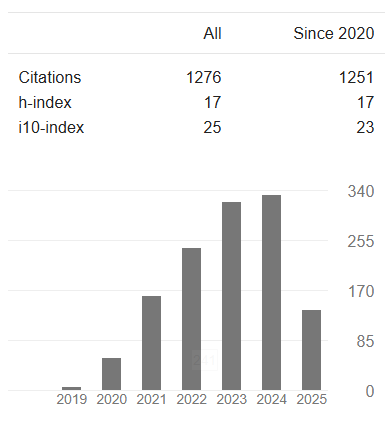Effect of Company Performance on Sharia Commercial Bank Executive Compensation in Indonesia
DOI:
https://doi.org/10.14421/EkBis.2020.4.2.1256Keywords:
Company Performance, Executive Compensation, Sharia Commercial BankAbstract
After the disclosure of data from companies, research on executive compensation began to develop. Several studies on executive compensation in banking found that the determination of compensation is positively related to company performance. This research aims to determine the relationship between company performance and executive compensation of Islamic Commercial Bank’s in Indonesia. Company performance is proxied by Return on Assets (ROA). This study uses a sample of Islamic Commercial Banks because they have very good performance growth and currently only have a market share of 6.18% compared to the national financial market so they still have the potential to experience growth. Furthermore, sample used 14 Islamic commercial banks registered with the OJK during 2014-2019. The research method used panel data regression analysis. The results showed that the performance of Islamic Commercial Bank’s has an effect on executive compensation. Islamic Commercial Bank Executives have an obligation to improve company performance (ROA) because it affects the compensation received by the executive.
Downloads
References
Alexander, J. (2018). Financial Planning & Analysis And Performance Management (Issue AcF 502). John Wiley & Sons, Inc.
Bank Indonesia. (2006). Peraturan Bank Indonesia No. 8/4/PBI/2006. Pelaksanaan Good Corporate Governance Bagi Bank Umum, 1–30.
Boschen, J. F., & Smith, K. J. (1995). You Can Pay Me Now and You Can Pay Me Later: The Dynamic Response of Executive Compensation to Firm Performance. The Journal of Business, 68(4), 577.
Buigut, K. K., Soi, N. C., & Koskei, I. J. (2014). Determinants of CEO Compensation Evidence from UK Public Limited Companies. International Journal of Business and Management, 10(1), 223–230.
Ghosh, A. (2006). Determination of executive compensation in an emerging economy: Evidence from India. Emerging Markets Finance and Trade, 42(3), 66–90.
Gill, A., Biger, N., & Bhutani, S. (2008). Corporate Performance and the Chief Executive Officer`s Compensation in the Service Industry. The Open Business Journal, 1(1), 62–66.
Gimbert, X., Bisbe, J., & Mendoza, X. (2010). The role of performance measurement systems in strategy formulation processes. Long Range Planning, 43(4), 477–497.
Goergen, M., & Renneboog, L. (2011). Managerial compensation. Journal of Corporate Finance, 17(4), 1068–1077.
Infobank: Analisis Strategi & Keuangan. (2012, October). PT. Infoarta Pratama.
Jensen, M. C., & Meckling, W. H. (1976). Theory of the firm: Managerial behavior, agency costs and ownership structure. Journal of Financial Economics, 3(4), 305–360.
Kato, T., Kim, W., & Ho, J. (2007). Executive compensation , firm performance , and Chaebols in Korea : Evidence from new panel data ☆. 15(January 2004), 36–55.
Khasanah, I. (2015). Pengaruh Kompensasi Manajemen Eksekutif Terhadap Kinerja Keuangan Perusahaan. Jurnal Akuntansi UNESA, 20(1), 25–44.
Mardiyati, U., Devi, M. S., & Suherman. (2013). Pengaruh Kinerja Perusahaan, Corporate Governance , dan Shareholder Payout Terhadap Kompensasi Eksekutif (The Impact of firms performance, Corporate governance, and shareholder payout on executives compensation). Jurnal Riset Manajemen Sains Indonesia (JRMSI), 4(2), 167–183.
Milkovich, G., Gerhart, B., & Gerhart, B. (2013). Compensation (11th ed.).
Murphy, K. J. (1999). Chapter 38 Executive compensation. In Handbook of Labor Economics (3rd ed., pp. 2485–2563). Elsevier B.V.
Otoritas Jasa Keuangan. (2017). Peraturan Otoritas Jasa Keuangan No.59/POJK.03/2017 Tentang Penerapan Tata Kelola Dalam Pemberian Remunerasi Bagi Bank Umum Syariah dan Unit Usaha Syariah.
Otoritas Jasa Keuangan. (2020). Statistik Perbankan Syariah - Desember 2019.
Pepper, A. (2018). Agency theory and executive pay: The remuneration committee’s dilemma. In Agency Theory and Executive Pay: The Remuneration Committee’s Dilemma.
Ramaswamy, K., Veliyath, R., & Gomes, L. (2000). of CEO Compensation in India1. 40(2), 167–191.
Rau, R. (2015). Executive Compensation. In Foundations and Trends in Finance (Vol. 10, Issues 3–4, pp. 181–362).
Ruparelia, R., & Njuguna, A. (2016). Relationship between Board Remuneration and Financial Performance in the Kenyan Financial Services Industry. International Journal of Financial Research, 7(2), 247–255.
Sari, S. P., & Harto, P. (2014). Kompensasi Eksekutif Dan Kinerja Operasional Perbankan Indonesia. Diponegoro Journal of Accounting, 3(2), 1034–1040.
Widarjono, A. (2018). EKONOMETRIKA Pengantar dan Aplikasinya Disertai Panduan Eviews (5th ed.). UPP STIM YKPN.





























 This work is licensed under a
This work is licensed under a 